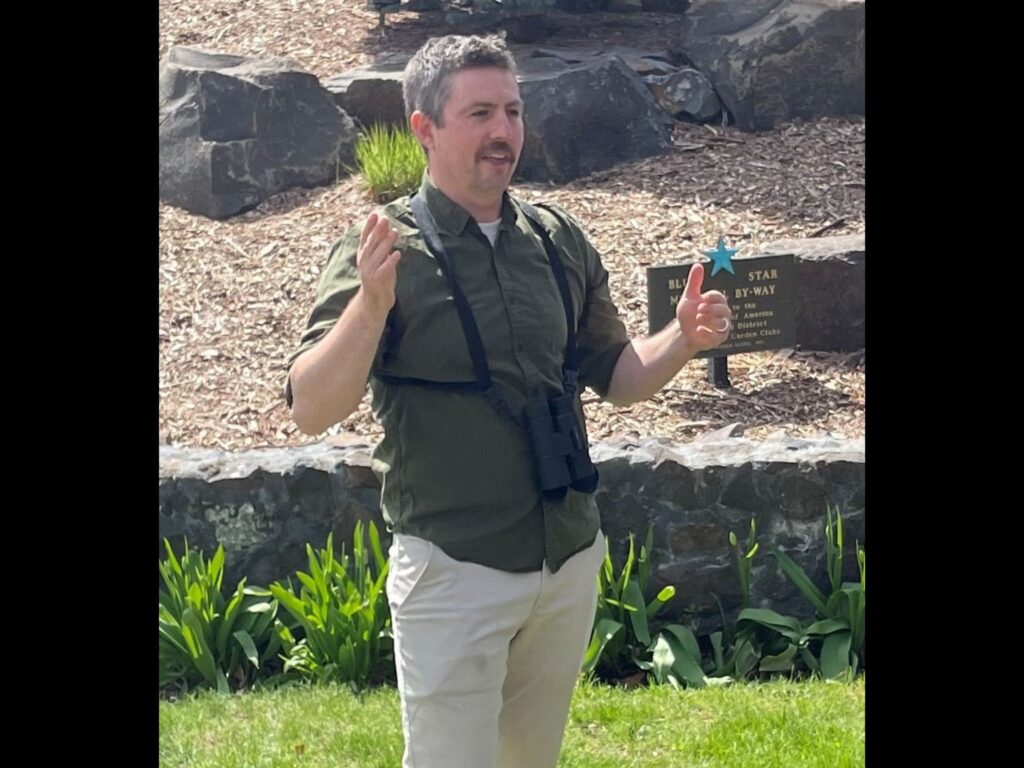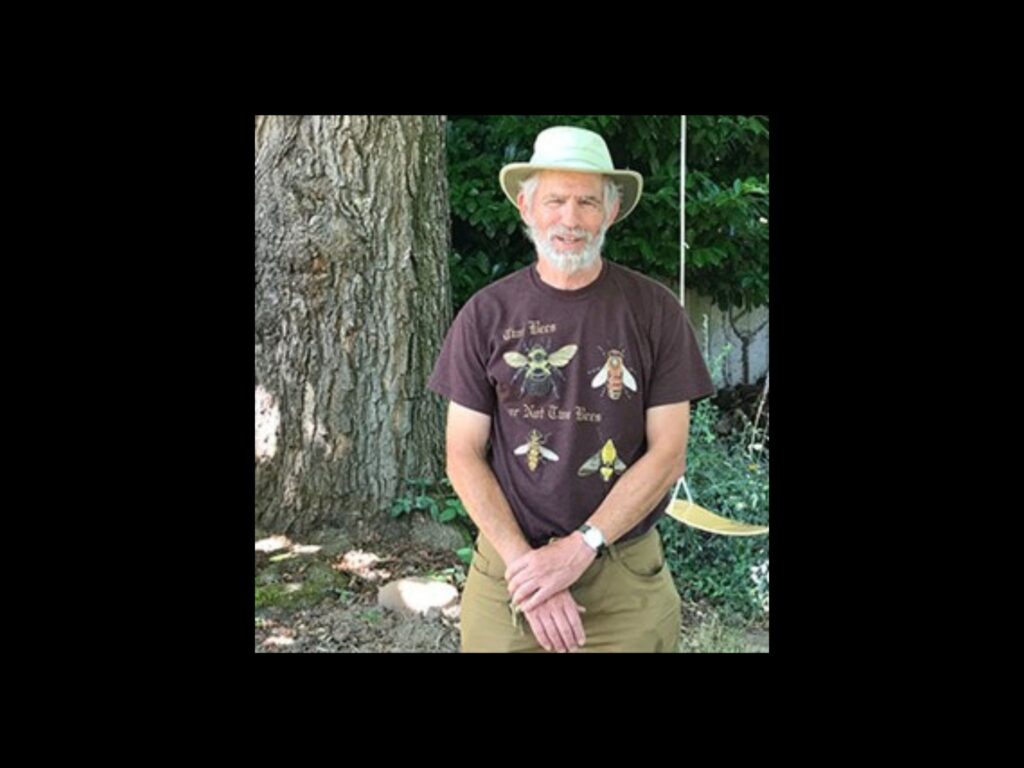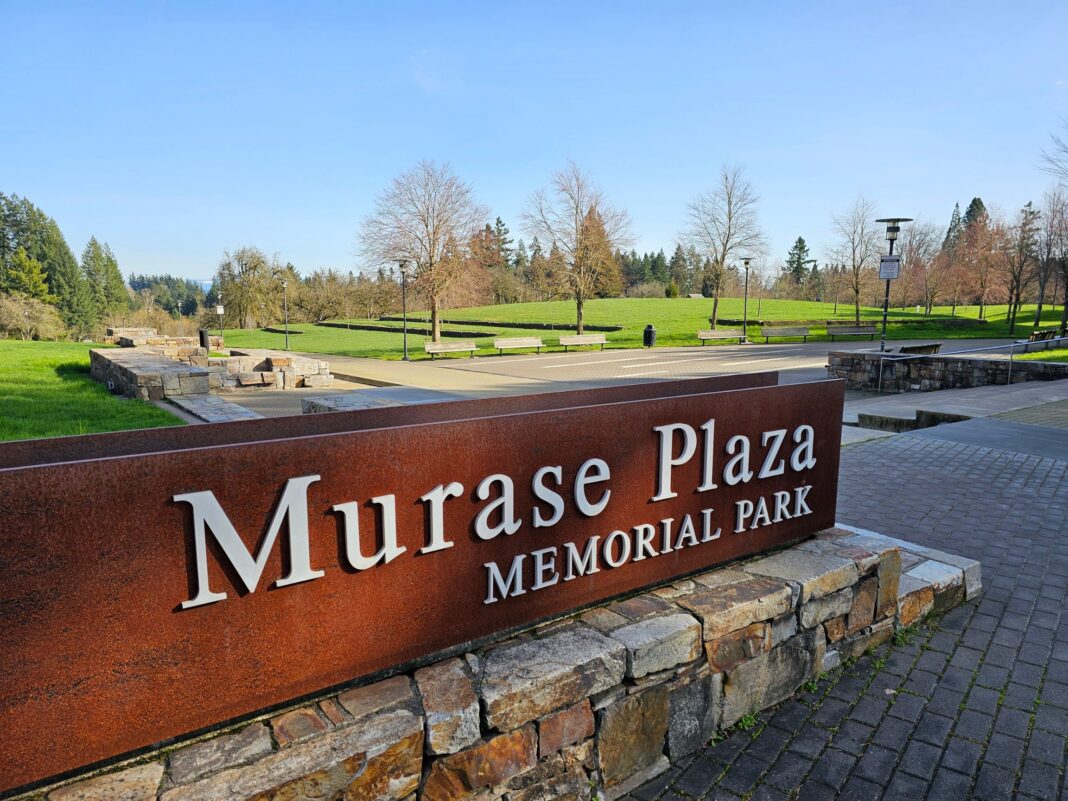The non-profit organization Oregon Community Trees (OCT) is honoring Portland residents Ryan Gilpin and Bruce Nelson and the City of Wilsonville for their work on behalf of urban trees. Gilpin and Nelson are receiving awards for their individual contributions to urban forestry, and Wilsonville is getting the award in the Organizations category.
“Every year Oregon Community Trees recognizes individuals and organizations that are doing outstanding work to help our urban forests,” said OCT President Tyler Roth. “This year’s recipients’ are especially deserving for the depth and breadth of their commitment to educating people about urban trees and promoting policies and actions to keep those trees healthy and well cared for.”
Gilpin, who lives in North Portland’s St. Johns neighborhood, is being recognized for a wide variety of tree-related activities. Gilpin is an advocate for tree cover to provide food and habitat for wildlife, and leads tree and bird walks in Portland.
Gilpin also helps educate community members on tree identification. Currently, Gilpin is advocating to protect a grove of madrone trees in Kelly Point Park in North Portland by having them become heritage trees.

A long-time volunteer at Columbia Slough Watershed Council, Gilpin leads birding and tree walks in both English and Spanish. His goal is to create community awareness around the importance of trees for more equitable communities in Portland. He is self-employed, owning Nidus Consulting, from which he consults on ecological and arboricultural matters.
Bruce Nelson has been involved with tree care and educating the public about trees for more than 30 years. He worked for Collier Arbor Care from 1986 to 1998, becoming a certified arborist in the mid-1990s. Later in that decade he began volunteering with Friends of Trees, working as a planting crew leader and eventually being called on to train future crew leaders.
Nelson founded Rigler School Arboretum in NE Portland’s Cully neighborhood, where he lives. There, Nelson has guided the planting of more than 70 different trees from a wide range of species, both native and non-native. Nelson also organizes volunteers to help him mulch, weed, water, and prune trees while he monitors tree health and growth. He also creates educational signage in English and Spanish to expand students’ and visitors’ knowledge about the trees.
While he was an instructor at Clackamas Community College, Nelson helped start the college’s Arboriculture program in 2014.
As a member of the Portland Urban Forestry Commission (UFC) from 2018 to the present, Nelson advises the Urban Forestry division, City bureaus and the Portland City Council on policy pertaining to the urban forest.

He is a founding member of Trees for Life Oregon (TFLO), a group advocating for preservation of large, healthy urban trees and the space for more of them. For TFLO he conducted a study of major north/south streets in East Portland to identify the size and species of street trees and assess their health. His study showed most of the arterials in this area lacked mature, shade trees.
Wilsonville recognized for tree stewardship and engaging residents
In the Organization category, OCT is recognizing the City of Wilsonville for the great job they have done engaging residents in planning, planting and stewarding their urban forest, and for how they’ve stepped up to deal with invasive pests, ice storms, and other challenges.
“Wilsonville’s Parks and Recreation program leads the way in creating and sustaining a thriving urban forest, overcoming many obstacles,” commented OCT’s Roth.
One example he cited was the February 2021 ice storm that destroyed hundreds of park trees in Wilsonville. “The City’s Parks and Recreation team acted quickly, purchasing new park trees to replace those lost to the storm. Within a year, the Parks and Recreation team had bought and planted 128 new replacement trees,” Roth said.
A more recent challenge has been discovering the invasive Mediterranean oak borer (MOB) attacking many of the city’s iconic Oregon white oaks. New to North America, this pest introduces a fungus which can cause a vascular wilt that can kill a tree. Once they suspected Wilsonville had the pest, staff quickly reached out to the Department of Agriculture (ODA) and the Department of Forestry (ODF) to confirm what they were facing and how to deal with it. After consulting with ODA and ODF, they created a plan to dispose of infected wood, attempt treatments, and educate the public as to signs and symptoms of MOB infestation.
Roth said another issue facing Wilsonville, like many other Oregon communities, is invasive species smothering native vegetation. The Parks and Recreation team is tackling the problem by grazing goats and mechanical methods to clear blackberries and other invasive weeds. Through this effort, they were able reforest three acres, with over 20 community volunteers planting 1,200 new trees. In 2023, the Parks team bought 1,000 more tree saplings to reforest another three acres.
Guiding Wilsonville’s efforts has been a new Urban Forest Master Plan. It prioritizes tree plantings in areas of the city with low canopy. Accompanying the Plan is a new tree manual to teach proper planting and maintenance by staff and volunteers.
Wilsonville actively engages the community in their programs as volunteers. Examples include a daffodil planting event, an annual Arbor Day celebration, Wilsonville Environmental Resource Keepers (WERK) Day community volunteer day, and disc golf course management.
Volunteers also turn out for tree plantings. Over the last three years, Wilsonville has planted hundreds of new park trees, reforested over six acres, and created a reforestation plan for years to come. With community input they created an arboretum at Murase Plaza Park that highlights trees with historical ties. Over the next 10-20 years, the community will select through a survey one new tree each year to add to the arboretum. It is already home to a Moon tree, a young Douglas-fir clone of a tree grown from a seed that traveled to the moon on Apollo 14. In February of this year, Wilsonville added a Hiroshima peace tree, which was grown from the seed of a ginkgo tree that survived the atom bombing of that Japanese city in 1945.







